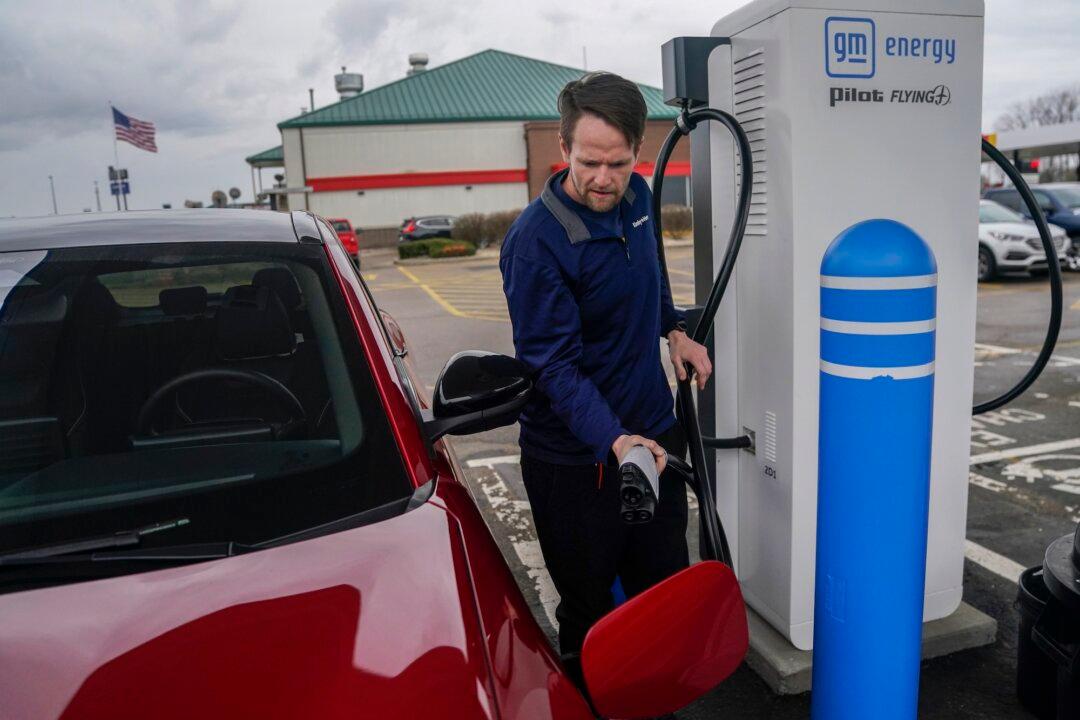President Joe Biden’s plegde to use money from the $1 trillion infrastructure bill to build 500,000 electric vehicle (EV) chargers by 2030 is moving forward—albeit at a snail’s pace—with officials revealing that, so far, the number built is seven.
When The Epoch Times reported on EV charging station construction in December 2023, just one had been built under the $5 billion National Electric Vehicle Infrastructure (NEVI) program, which is part of the 2021 Infrastructure Investment and Jobs Act.





